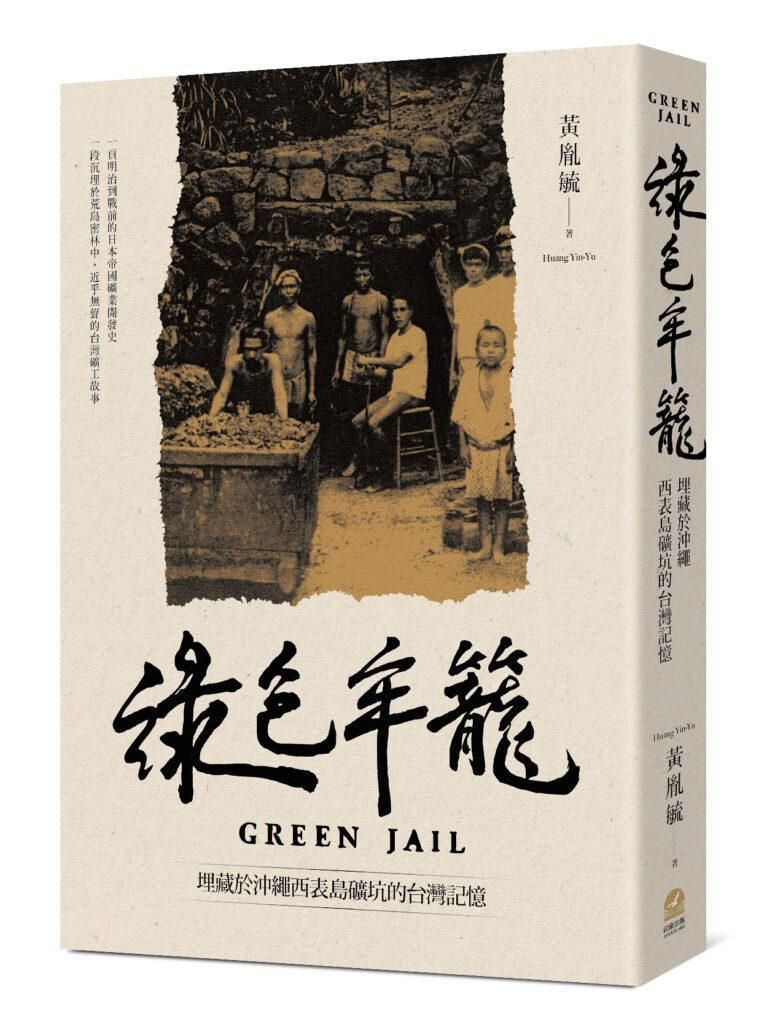
需要藍天
Let's talk about documentaries
Back to the documentaries.
In the last year, many documentaries and books were published together. For example, after Chen Tianying completed the documentary "Stateless-Stateless-" in 2009, he published "Stateless: Me, and Those People Forgotten by the State" in 2011; "They Write on the Island" " series, there are documentaries and books. Most of these books supplement the information that the documentary does not have.
I recently finished reading a book, and Jin Zhong did not publish it in this form. The title of the book is "The Green Cage: Taiwan's Memories Buried in the Mine of Iriomote Island, Okinawa". The author is Huang Yinyu, who is also the director of the documentary "The Green Cage".
"Green Cage" is the second work of Okinawa Taiwanese immigrants and descendants of Taiwan and Japan. The first is "The Other Side of the Sea", which tells the story of the old lady of the Yumu family returning home to Taiwan. And this is about the hard life of thousands of miners from Kyushu, Okinawa, colonial Taiwan, North Korea and other places who came to work in the "Iriomote Mine" on Iriomote Island, Okinawa, Japan. Through Ryo Hashima, the documentary narrates this tragic episode. This book is a record of the director's shooting records, field research and data collection process.
The director raised an important topic at the beginning of the book:
Over the past few years, I have occasionally been questioned on the ethics of documentary film: Am I using such a defenseless old man to achieve my observation of history through her, like the subject of a thesis - am I using an emotional questioning , in order to obtain my information and comments? (page 6)
Indeed, this is a process of continuous self-examination by every documentary filmmaker; especially when filming the lower classes of society: the trust of the filmed person in the filmer is a very important part of the documentary. If the person being filmed no longer participates, the film will be sentenced to "death." The exception, of course, is "I've got the blues." Director Anqi Chen shoots the story of painter Huang Renkui. The beginning of the film is a hot scene: the director blasts the protagonist. The film ends with the protagonist no longer participating in the filming. But director An Qi simply "turned corruption into magic" and completed a wonderful documentary.
In addition to the interview, the documentary "Green Cage" will also have a reenactment. The director also mentioned his views in the book:
However, the term "reenactment/reenactment" is still a controversial issue when it is discussed in the showdown in the documentary circle. The question of "Why do I need to reproduce?" is also following me and this case, and the question behind this is: What kind of film do I want to make? As a directing technique, can reproduction really help me to tell and create the style of film I want to make and the point of view of the documentary that I want to achieve?
The first is theoretical practice. Through "re-creation of reality", what kind of goals have we achieved, and closer to the "reality" we believe.
The second is the practice of execution. Through the shooting methods such as feature films, how do we actually control the grand structure and fundamental difference between "reappearance" and documentaries, so that the two can be integrated into one film without making The audience resents and pulls each other without breaking the two, resulting in a film that is essentially turbulent. (page 236)
This book is a good documentary textbook. Looking forward to the release of the documentary.
~~~~~~~~
Stateless (from blog) —
https://www.books.com.tw/products/0010722056
Green Cage (from blog) —
https://www.books.com.tw/products/0010889707
Trailer for the documentary "The Green Cage" -
https://www.youtube.com/watch?v=JS-DGBa2zwA

Like my work?
Don't forget to support or like, so I know you are with me..
Comment…